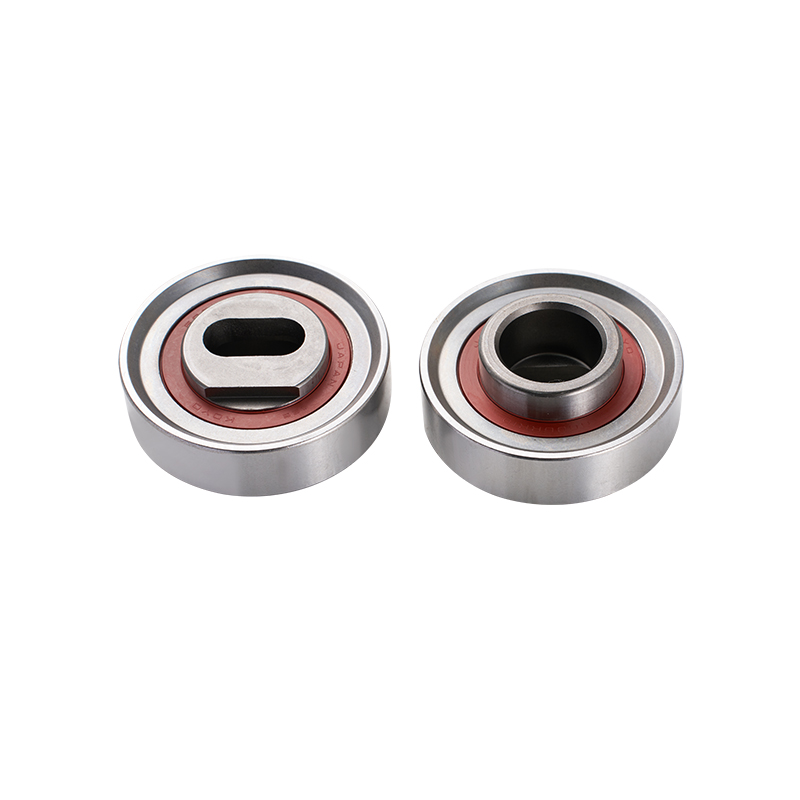In modern engines, precision and timing are everything. One of overlooked components in the timing system is the timing bearing. Often working quietly behind the scenes, it plays a critical role in ensuring your engine's timing system operates smoothly. However, when a timing bearing begins to fail, it can quickly cause catastrophic engine damage if not detected early. Understanding how to identify early signs of a failing timing bearing, along with related components like the adjuster bearing and the tensioner and idler bearing, can save both your engine and your wallet.

The timing bearing is responsible for supporting rotational movement within the timing system. In many setups, it works alongside the adjuster bearing, which maintains proper alignment and pressure, and the tensioner and idler bearing, which helps manage belt or chain tension. These components function as a cohesive unit, and if one begins to wear out, it often puts additional strain on the others.
One of symptoms of a failing timing bearing is unusual noise. A faint whining or grinding sound from the front of the engine is often indicator. This sound typically worsens with acceleration and may disappear at idle. Since the adjuster bearing also rotates under load, a failing one can produce a similar noise. If both the timing bearing and the adjuster bearing are worn, the noise can become more pronounced and cause belt slippage or misalignment.
Another telltale sign is vibration. When the tensioner and idler bearing begins to degrade, it can cause uneven belt tension, which in turn affects the smooth operation of the timing bearing. This results in subtle but detectable engine vibrations, especially at higher RPMs. These vibrations may not trigger a warning light immediately but can cause premature wear across the entire timing assembly.
Regular inspections can catch these problems before they escalate. During routine maintenance, technicians should inspect the timing bearing for signs of excessive play or visible wear. The adjuster bearing should rotate freely without resistance or noise, and the tensioner and idler bearing should maintain consistent pressure on the belt or chain. If any of these components feel loose or emit noise when spun manually, they are likely on the brink of failure.
Thermal issues also come into play. Overheating can cause lubrication breakdown within the timing bearing, cause increased friction and accelerated wear. This can impact the adjuster bearing as well, since it often operates in the same thermal zone. A compromised tensioner and idler bearing can add to the problem by allowing belt slip, generating additional heat through friction.
Technological diagnostics have advanced, but not all engines are equipped with sensors that detect early timing bearing degradation. Therefore, relying solely on electronic alerts is not recommended. Instead, periodic manual checks of the adjuster bearing and the tensioner and idler bearing can help spot early issues. In high-mileage or performance engines, replacing these components proactively rather than reactively is often a safer bet.
Ignoring early symptoms may cause the ultimate failure scenario—belt or chain dislodgement. When the timing bearing seizes, it can throw the belt or chain off track, causing piston-to-valve contact in interference engines. This results in bent valves, damaged pistons, and, in severe cases, total engine failure. Since the adjuster bearing and the tensioner and idler bearing play roles in maintaining tension and alignment, their failure accelerates this risk dramatically.
Early identification of a failing timing bearing can be the difference between a minor repair and an engine overhaul. By paying attention to noise, vibration, thermal performance, and manual inspection results, you can ensure all related components—including the adjuster bearing and the tensioner and idler bearing—are functioning goodly. Preventive maintenance is always less expensive than reactive repair. Stay alert, and your engine will thank you in the long run.



 English
English русский
русский
